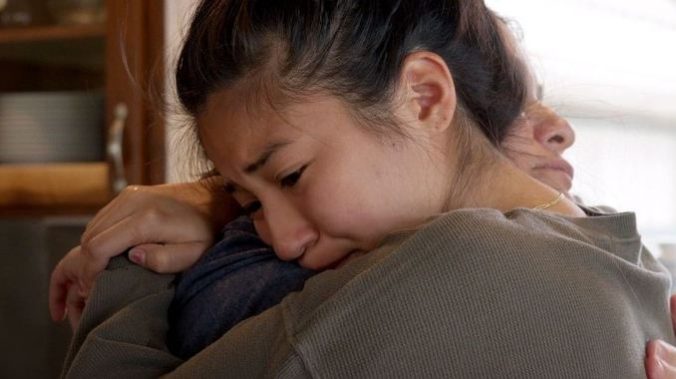Don’t Visit Bad Axe, Just Watch Bad Axe

Movies are a communal experience and a joint undertaking, but as fundamental to the medium as those qualities are, few movies candidly accentuate either of them. This distinguishes David Siev’s Bad Axe from other movies released in 2022, fictional features and documentaries alike: It’s a movie about movies as the product of a village, or in Siev’s case his focal point of study, his whole damn family. It’s also how the movies are an excellent tool for planting catharsis. But catharsis isn’t solely the director’s reward: The benefits are reaped by their collaborators and viewers, too. Bad Axe, a product of place, time, and circumstance, is a thickly layered reminder about that unique quality.
Bad Axe rests in rural Michigan, two and a half hours away from Ann Arbor, where David’s older sister, Jaclyn, lives with her husband Michael, and the same distance from Lansing, the state capital, where in May of 2020, armed looney tunes gathered for what they would call a “protest” but what those of us living on Earth recognize as intimidation spurred by raw ignorance. As the film begins, David, Jaclyn and Michael are holed up with their mother, Rachel, and father, Chun, in their lovely, spacious enough home, joined by their two other siblings, Raquel and Michelle, and their significant others, David’s fiancée Kat and Raquel’s boyfriend Austin. It’s the moment before the great plunge, where the COVID-19 pandemic forced the nationwide issuance of stay at home orders plus the shutdown of all non-essential businesses.
You remember where you were when the news hit. All of us do. Bad Axe time-warps its audience back to those terrifying, awful first days of what became years, lasting right up to now (and continuing into tomorrow and beyond); David’s home video footage, which he shot seemingly as a way of maintaining his sanity under conditions of lockdown combined with relentlessly close proximity to his loved ones, drops us back in 2020 as individuals and as witnesses. Bad Axe invites us to relive a period which none of us want to relive, but through the mounting travails of the Sievs, which worsen as the film glides along and uncertainty bleeds into eternity. The deck is precariously stacked against them off the bat; they run a restaurant, named after Rachel, and they’re a Cambodian Mexican American family in rural, Trump-country Michigan.
Chun survived the Cambodian Killing Fields and relocated with what was left of his family to Romeo, Michigan. He’s an American. This is irrelevant to people who singly define “American” as “white.” Bad Axe jabs an angry finger at nationalism and ethnocentrism, while parceling out dignity for Chun, whose martial arts prowess and firearms expertise are excellent reasons not to mess with him; for Rachel, Jaclyn, Michelle, and Raquel; and for David, who, as the filmmaker, is given a partial pardon from beating back the harassment the Sieves face as the movie takes us further into COVID, and the closer to the 2020 election.
-

-

-

-

-

-

-

-

-

-

-

-

-

-

-

-

-

-

-

-

-

-

-

-

-

-

-

-

-

-

-

-

-

-

-

-

-

-

-

-








































